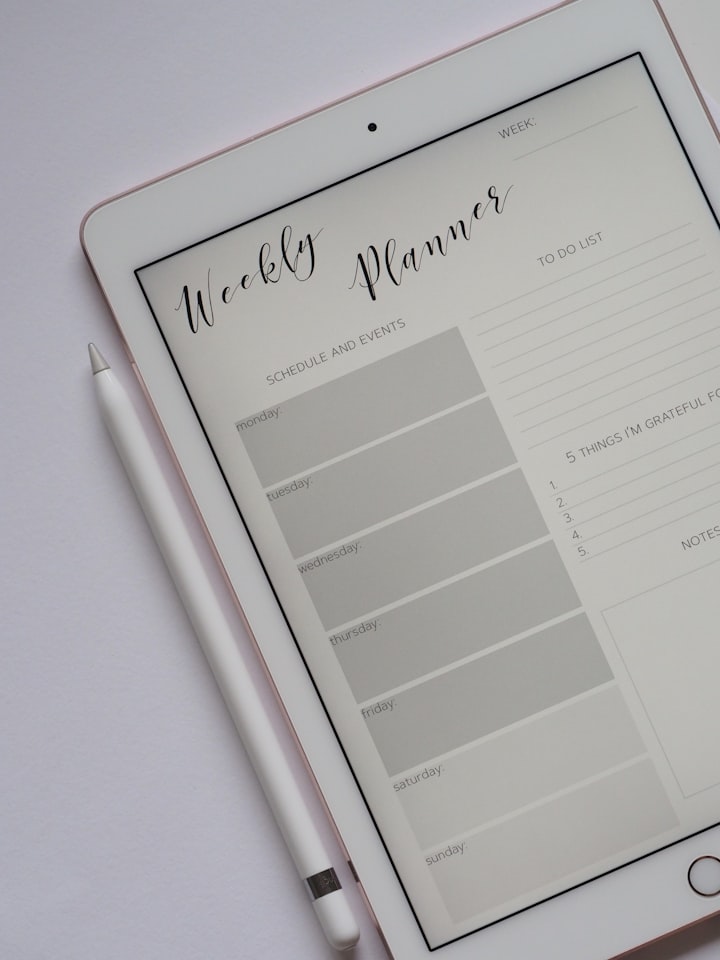The Downside to Being Goal-Oriented
Do super-driven people miss out on some of life’s greatest joys? Are we not eating enough ice cream cones and feeling the sand between our toes?

Lately, I have been thinking about the dark side of grit and in particular how being goal-directed in the extreme can be a bad thing. If you are spending a large proportion of your 168 hours per week pursuing goals, you may be spending fewer hours savoring the present moment being mindful. So these strivers who are rushing around getting stuff done, are maybe less happy. Maybe they’re just missing out, right? I mean, let me ask you this, in a given day, what percentage of time that you’re awake do you think you are having goal-directed thoughts versus the percentage of time where you have no goal in mind? You’re maybe eating a really good piece of brisket.
So at the risk of shortchanging your brisket, I’m gonna say between 90 and 95.
I am going to go with the same ballpark answer I gave myself like 95%. Let’s say I am sketching out my workday; I try to arrange it in a kind of order or a pattern that I know we’ll have some flow to it because if there’s work of a certain intensity, I have to chunk that up.
So, I will sit down and draw up a little timetable. For maybe 28 minutes, I’m going to do nothing but have my eyes and brain on this puzzle I’m trying to solve, then I reward myself with maybe three to five minutes that I do time on my watch. And in those three minutes, I might use it to play a part of a backgammon match. I might use it to check the score of some sporting event that I care about. So I’m very goal-oriented but I don’t feel that I’m missing out by not savoring.
This is very similar to have you ever heard of the Pomodoro Technique?
The Pomodoro Technique was invented by an Italian software designer, Francesco Cirillo who had a problem with procrastination. And so he would set his kitchen timer, which I guess was a plastic tomato, but he’s Italian. So he would set it for say 20 minutes or 25 minutes. And then he would work during that time. And the timer was keeping track of when this time would be up as opposed to if you had no time or you would have to keep track of it yourself. And you’d constantly be looking at the clock and that would be distracting. So when the alarm goes off, you know that you’re done your little work stint. And then he would set the timer again for like five minutes and take a break.
How to decide the length of a Pomodoro timer
Maybe some people would set it for 15 work and then take a 15-minute break or 27 work to a 3-minute break.
I aspire to the 27–3, but you know, it’s interesting, you become aware of the time by measuring it. For me, I realized that my estimate of time is horrible. Sometimes it seems much longer, and sometimes it seems much shorter. And what that tells me is that when your mind is engaged, time does become almost a different chemical state.
Well, for human beings, the perception of time requires attention. And so in the state of being completely absorbed in what you’re doing, time can get distorted in either of those directions. So maybe this Pomodoro Technique enables you to take whatever attention you would have had on the passage of time. And just do whatever you’re doing for whatever it is that you set your timer for.
When I hear people talk about how they’re not able to get their work done because of distractions from texts, or email, or Facebook, or whatever. To me, the solution is pretty obvious, which is making it impossible for those intrusions to happen.
At what cost does your successful navigation of this dilemma come?
This gets me back to my original question, which is, what are you missing out on?
For most of the past six months, I’ve been working at home with my whole family around. It’s very different. When you’re thinking or writing or reading or interviewing someone, it’s not great to have someone just come in and say, ‘Hey’, but then once it was obvious to me the shape of the family interaction going forward, I just kind of changed the rules in my head.
And if it starts to get trivial to the point of I’m getting interrupted 30 times in an hour to talk about, you know, whether that cloud looks like a rabbit or an aardvark, then I might say, I’m going to take a break from the interruptions now, and focus on the work. And I found that we found a sort of natural space there. I feel like I haven’t been less productive. But my productivity comes in more little chunks over a long time, rather than in big chunks over a shorter time.
If you have wrestled with this existential question of whether many years from now on your deathbed, you will have regrets. You’ve probably heard this very famous thing. There was a palliative care provider, Bonnie Ware, who asked many of her patients what they regretted. And famously, nobody said,
‘I wish I spent more time at the office’.
I think what are you doing in your office, and it doesn’t have to be an office, it could be a studio, it could be your living room, it could be your garden, whatever it is you do; if it’s a job you hate, then, of course, you wouldn’t want to have more time doing it.
I don’t mean to be ignorant of the fact that many people’s work is nothing but a chore. When you look at the data on satisfaction with work, you see that to most people around the world, work is nothing but a way to earn money for survival and that’s a bummer. When people say no one on their deathbed ever said I wish I’d spent more time in the office, I completely agree.
We probably do define ourselves a lot and maybe too much by our vocations. I will say this though; one of my favorite sayings in life was something my mom would say. So there was naturally a little bit of impatience because she had many kids, like, why all my clothes are hand me downs? Why most of our food is homegrown food? etc. And my mother had a phrase, and the phrase was, ‘enough is as good as a feast’.
And you know, even though the phrase connotes food and eating, I think it’s a life parallel. And I think about it all the time in economic terms. This goes back to our conversation about maximizing versus satisficing. We think that maximizing will bring outsize rewards that we can savor and will make us feel a different category of satisfaction. I’m not saying anything that philosophers haven’t identified before, which is the key to happiness as being happy with what you’ve got, not with having to always cast your eye on a new goal.
So it sounds to me like on the Pomodoro Italian when you set it to 27, to do work that you love. You’re very happy in these 27 minutes.
There’s gratification that you find in your work. And if I have this right, you’re pretty happy with the three minutes you have to be completely unplugged, not goal-directed, just fuzzing around on your backgammon game, etc. And you don’t want to change this to be 15–15. Your 27–3–27 is a feast for you.
Everybody finds a way to arrange their lives to make themselves, as happy as they can, given their circumstances and their constraints. I don’t need my pattern to look like your pattern. You don’t need your work to look like my work to be happy and so on. So I’ve got my Pomodoro and you’ve got yours.
******** **************** **********************
Like what you read? Send me a gift below to help contribute to my next adventure!
You can also sign up for my mailing list here: https://bit.ly/3el7KKa
About the Creator
Blessing Akpan
I am a photographer of thoughts, let me capture your soul.






Comments
There are no comments for this story
Be the first to respond and start the conversation.